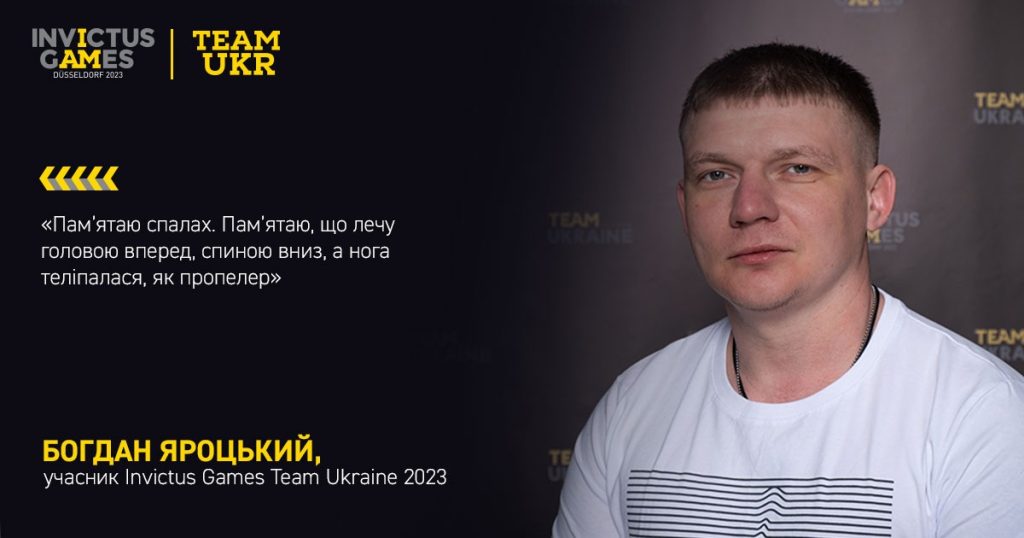The beginning of the full-scale war
Before the war, before the full-scale invasion, I worked in Izyum forestry in the Kharkiv region as a forester. I come from Izyum. It was there that I met the first battles, and there I got injured.
Before the war, I really liked to workout – training on the horizontal bars and parallel bars. I liked to walk with my dog. We loved to go far with my Labrador, to the forests, to ravines. When I had a day off, we could spend time together, walking.
In 2014, despite the fact that I understood what was happening, I wasn’t rushing to go to the front. Even though I was healthy and fit for the army. I had a job that I liked and I was working. But when the war literally came to my house, I took up arms and went to defend it.
I foresaw that the war could affect the Kharkiv region. I closely monitored the situation because the russians had been gathering troops all year. I believed that they were doing it for a reason. But I thought that everything would go to the Donetsk region, that they would try to capture Mariupol and fight along the sea.
On February 24, I visited all my relatives, asked who was going where, and how we were going to act, and on the morning of February 25 I was already in the territorial defence. There were some guys who had a lot of combat experience since 2014, and they were in charge of us. I was with them, I knew what to do and trusted them completely.
I was a driver.
My mother left for Poland, my brother left for Canada long before the war. My grandmother stayed in the city and did not want to leave. This was her second war, she had already experienced shelling and occupation. She also survived the Holodomor. And my aunt stayed too because she did not want to leave my grandmother. They hid in the cellars.
We have a river, the city is divided into two parts. The central part, where there are historical buildings, was completely demolished by the russians. That’s where we were standing with the territorial defence, and everything around was completely destroyed. And the part of the private sectors where the russians came from, was also destroyed, but not as much as in the centre. The city centre is gone.
The most memorable day
March 9 was the day when the russians erased everything. With artillery, aircraft, tanks, and mortars. Before that, it had been going on all day, and the night before that. We were just changing positions. Then there was an air raid on our position. Our commander was killed, my immediate commander. And while changing positions, we also got under fire from unknown sources. There was a flash and I remember flying head first, back down, and my leg was flapping like a propeller. I did not lose consciousness.
I didn’t have a first aid kit with me at the time. I had to take the belt off the machine gun and pull the bolt. I pulled my leg with the belt and twisted the bolt. I tried to crawl. My leg was just holding on to the skin. When I was crawling, it was clinging to the asphalt, stretching, it was very painful. Then I laid down on my side, put my wounded leg on top of the other leg and crawled like that for about 20 more meters. And then I felt that I had no strength to crawl anymore and I blacked out.
I woke up in a shelter. The guys from the 81st Brigade pulled me out. They applied a tourniquet on me and told me to be patient because help was on the way. An ambulance came from Kramatorsk and took me and two other wounded guys. The ambulance is designed for one wounded person, but they put us in stacks. We barely drove 50 meters and there was another missile attack at us. But they missed a little bit.
I arrived in Kramatorsk and shouted to the doctors: “I’ll pay any money, just save my leg!”. They said: “What money are you talking about?” and the doctor took what was still attaching my leg to my body and cut it off. I know guys who cut off the tissue that held their injured legs. They said: “Yeah, that hurts, but at least you can crawl.” And I dragged my leg all the way behind me hoping that they would save it.
But I had suffered so much pain that I really wanted them to finally give me some painkillers and just to fall asleep. I immediately thought: “He cut it off, well, not a big deal, I have another leg.” But I crossed the Dnipro River. I had one leg in Kramatorsk and the other in Vinnytsia.
There was a time when Izyum was under occupation and there was no contact with my family and friends who stayed in the city. My hometown was a mess, everything was exploding and bangin’, so I was the last to think about my leg. The news made the sh**t even worse. The events at Azovstal were such a shock and at the same time a delight for the Ukrainian nation. I didn’t even think it was possible.
So at that moment, I thought I was very lucky. I was in the hospital, doctors brought me pills, and I had to have my wounds bandaged every day. And the guys who were fighting at Azovstal had their wounded legs and arms cut off because there was no antiseptic. It was very scary. And I thought: “I would give both my legs away just to make it easier for them.”
Every day new guys were brought to the hospital, and they were in worse condition than me. I looked at all that and did not think of feeling sorry for myself at all.
Rehabilitation
I really wanted to throw away my crutches, I really wanted to walk, so I put them away very quickly. In a month, I was walking on the prosthesis by myself. It was a training prosthesis. It was just like a wooden one, not bendable, just a training one so that my leg could get used to the prosthesis. I was walking on my own. Not far, but I was already walking. It was hard, it rubbed and it hurt, but I wanted to start walking as soon as possible.
I still have phantom pains. Only not as bad as before. But it often burns when the weather is about to change.
I had a problem at the beginning – I was brought to the hospital without money, without documents, without a single document, I was even considered a civilian there at first. I had only one phone with Diya on it. That was it, I had nothing else. And then everything got better, they brought my passport.
I was able to contact my relatives in Izyum only after the city was liberated. Because there was no mobile service. And even after the liberation, there was no connection right away, because everything was broken and disconnected.
I was already near Bakhmut on a prosthesis. It’s an interesting feeling when you ride on all those rough roads.
How would you describe your personality?
I am quite sociable, but I really appreciate the time spent with my dog or alone. This is very important to me. But I always treat people well. For example, in the national team, I enjoy talking to the guys and girls, but I don’t want to impose with my friendship, bother them with questions, or express my opinion when no one asks for it.
Are you self-critical?
Yes, I am. But there was a time when I thought I was better than everyone else. I wanted others to treat me as if I were the best. But later I realized that such a position harms many people.
Who is your friend?
For me, friends are people who have been tested over time. Back in 9th grade, we had our own rock band. I was the most athletic, the biggest among the guys. And the other two were so-to-say “wimps”. Once my brother had a conflict on the street. I told the guys in the group: “You guys do what you want, but I’m going to get my brother.” I got into that crowd, and I turned around and I saw two “wimps” behind me. I realized that they would be my best friends. We still keep in touch with them.
What are your feelings when you defend your hometown at war?
Honestly, at that time I didn’t have time to understand my feelings. It was important for me to somehow choose a place to hide from the shelling, and then come out and do something to prevent the enemy from forcing the river.
When you are in all this, there is no time to think about feelings. By the way, this state helped me fight fear and despair. There were a lot of situations when I had to run through a bombed-out city, step over the corpses of civilians, and just see it all and put off the emotions for later you just realize what you have to do.
What are you most proud of?
I can’t say. I’ve done a lot of good things and a lot of bad things too. I look at real heroes and at my own actions in life, and I realize that I did nothing.
Although, if you think about it, the fact that I took a wounded guy from the SSO to Sloviansk could be such an act. He is still alive and was wounded twice after that. It was on March 9, I took him out in the morning, came back, and in the evening I was wounded myself.
Who is your hero, your example?
These are the soldiers of the Azov regiment. They did what no one had ever done before.
Who inspires you?
To be honest, I am inspired by these guys and girls with whom I am here now, from the national team, who are trying to achieve results despite everything – through pain, through difficulty, not looking at what happened before, but only looking forward. This is very inspiring. And also the coaches who believe in us and see the potential to represent the country in Dusseldorf.
How should society react to a veteran wearing a prosthesis?
I try not to show my prosthesis. I don’t want to be stared at, it’s not very pleasant. And it’s very annoying when people give up their seats in the subway. I would like to be treated the way everyone would like to be treated. I don’t need gratitude and shouting about heroes. But if anyone invites me to a school to talk to kids, I will come.
What is the main lesson you learned from the war?
A guy once told me in the battalion: “You shouldn’t get attached to people in the unit, make friends here. Because when they die, you can grieve for a long time, and you will lose your combat capability. That is, you will harm yourself and the unit.
Why do you want to participate in the Invictus Games?
The chief of staff called me, said that an order had come from the brigade, and asked if I was ready to go to the selection. I was shocked when I found out that I was selected for the national team.
I’m going to win and do my best so that the coaches who trained me will look at me and realize that they really made me win. And for soldiers like myself to be inspired and try themselves at the next Invictus Games.

